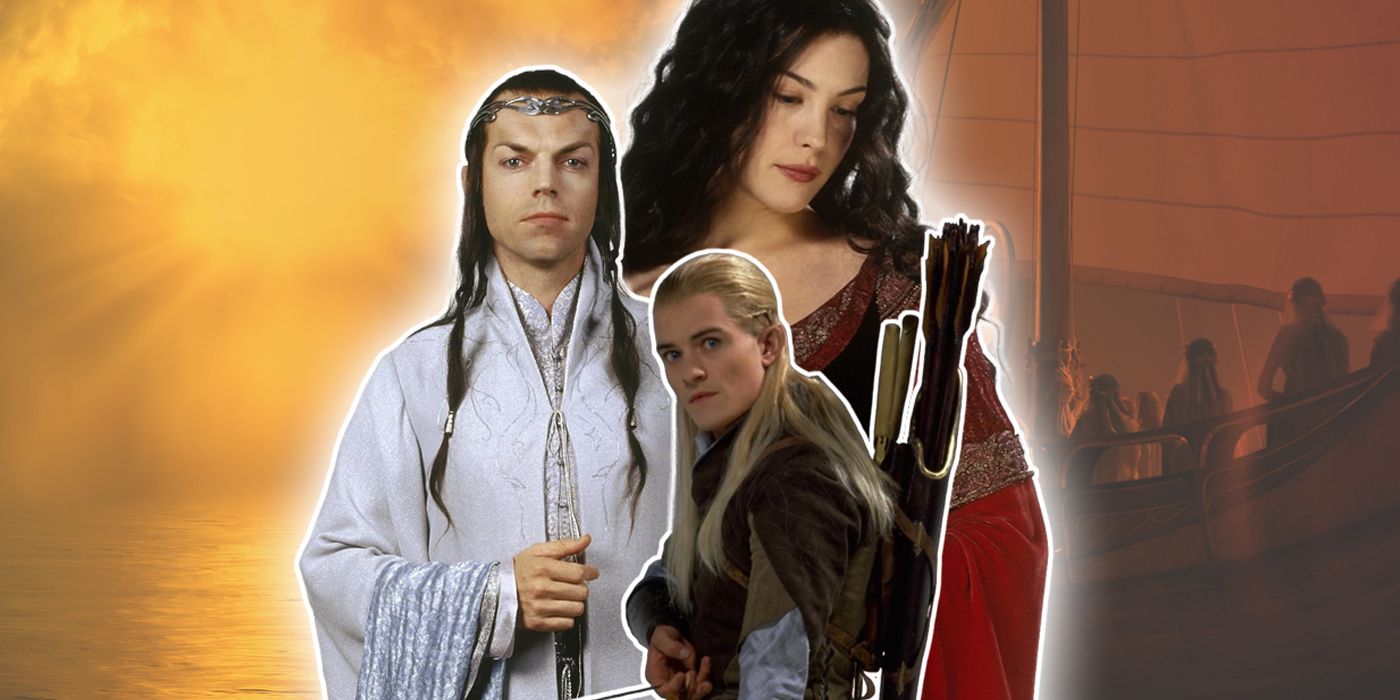The Lord Of The Rings set up tropes that would be used in fantasy storytelling for decades. J.R.R. Tolkien didn’t invent Elves, Dwarves, Orcs, Goblins, or Dragons, but his conceptions of them would become common. A great example of this is Tolkien’s Elves. In folklore, Elves were often tricksters, creatures of magic and madness who loved to bewitch mortals. Tolkien’s Elves were quite different. While they were certainly magical beings, they weren’t tricksters, but divine. The Elves were the first beings to awaken on Middle-earth and were known as the “favored Children of Ilúvatar.” The Elves were also immortal and lived through some of the darkest moments in Tolkien’s entire saga.Elvish immortality in The Lord Of The Rings universe is quite interesting because it’s about more than just living forever. The fate of Elves is bound up with the fate of Middle-earth itself, and even the only death they can die – in combat – isn’t actually the end for them. The Lord Of the Rings created modern fantasy, and the changes it made to the Elves are unique. Elvish immortality is something that is a bone of contention in Middle-earth between Elves and Men, but it’s as much of a curse as it is a blessing.Middle-earth would exist for countless years before the Elves awakened. The Elves lived on their own for a time before being found by the Valar known as Oromë, who would bring the three chief Elves – Elwë, Ingwë, and Finwë – to Valinor to see the Valar. The Valar loved the three of them and invited the rest of the Elves to Valinor as well. The three kindreds of Elves – Teleri, Vanyar, and Noldor – would begin the journey to Valinor. Some Elves would stop their journey, choosing instead to stay in the lands they saw on the way.
The Lord Of The Rings set up tropes that would be used in fantasy storytelling for decades. J.R.R. Tolkien didn’t invent Elves, Dwarves, Orcs, Goblins, or Dragons, but his conceptions of them would become common. A great example of this is Tolkien’s Elves. In folklore, Elves were often tricksters, creatures of magic and madness who loved to bewitch mortals. Tolkien’s Elves were quite different. While they were certainly magical beings, they weren’t tricksters, but divine. The Elves were the first beings to awaken on Middle-earth and were known as the “favored Children of Ilúvatar.” The Elves were also immortal and lived through some of the darkest moments in Tolkien’s entire saga.
Elvish immortality in The Lord Of The Rings universe is quite interesting because it’s about more than just living forever. The fate of Elves is bound up with the fate of Middle-earth itself, and even the only death they can die – in combat – isn’t actually the end for them. The Lord Of the Rings created modern fantasy, and the changes it made to the Elves are unique. Elvish immortality is something that is a bone of contention in Middle-earth between Elves and Men, but it’s as much of a curse as it is a blessing.
Middle-earth would exist for countless years before the Elves awakened. The Elves lived on their own for a time before being found by the Valar known as Oromë, who would bring the three chief Elves – Elwë, Ingwë, and Finwë – to Valinor to see the Valar. The Valar loved the three of them and invited the rest of the Elves to Valinor as well. The three kindreds of Elves – Teleri, Vanyar, and Noldor – would begin the journey to Valinor. Some Elves would stop their journey, choosing instead to stay in the lands they saw on the way.
#Elves #Immortality #Isnt #Blessing #Lord #Rings
Note:- (Not all news on the site expresses the point of view of the site, but we transmit this news automatically and translate it through programmatic technology on the site and not from a human editor. The content is auto-generated from a syndicated feed.))



